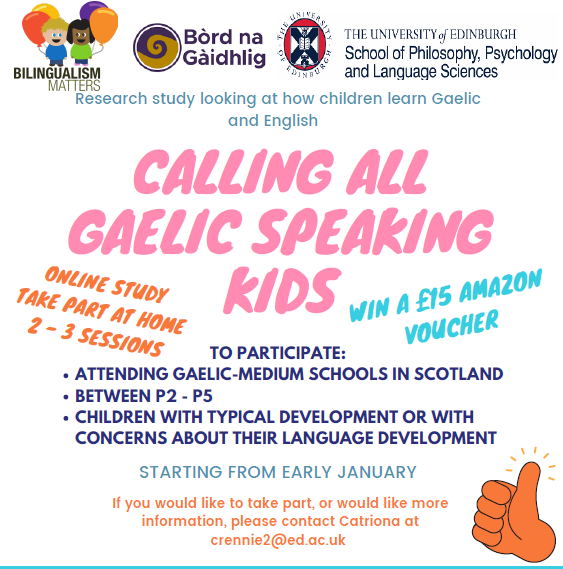A research team from the University of Edinburgh is looking at how bilingual children learn Gaelic and English and which areas of the languages are hard for them. The project is investigating how children in Gaelic-medium education (GME) in Scotland learn Gaelic in order to identify areas of difficulty for children with typical development and for those at risk of language impairment in these schools.
The study is looking to recruit children from Primary 2 to Primary 5 with typical development or whose parents, teachers and/or Additional Support Needs Co-ordinators (ASNCOs) have expressed concerns about their language development in their dominant language (be it English or Gaelic). The study is being conducted online by video conference during a time suitable for parents and children.
Read the letter to parents in Gaelic and English here (pdf)
This work is led by Dr Vicky Chondrogianni, our Bilingualism Matters Edinburgh Programme Director for Bilingual Development and Developmental Language Disorders.
If you would like to take part, or would like more information, please contact Catriona crennie2@ed.ac.uk


